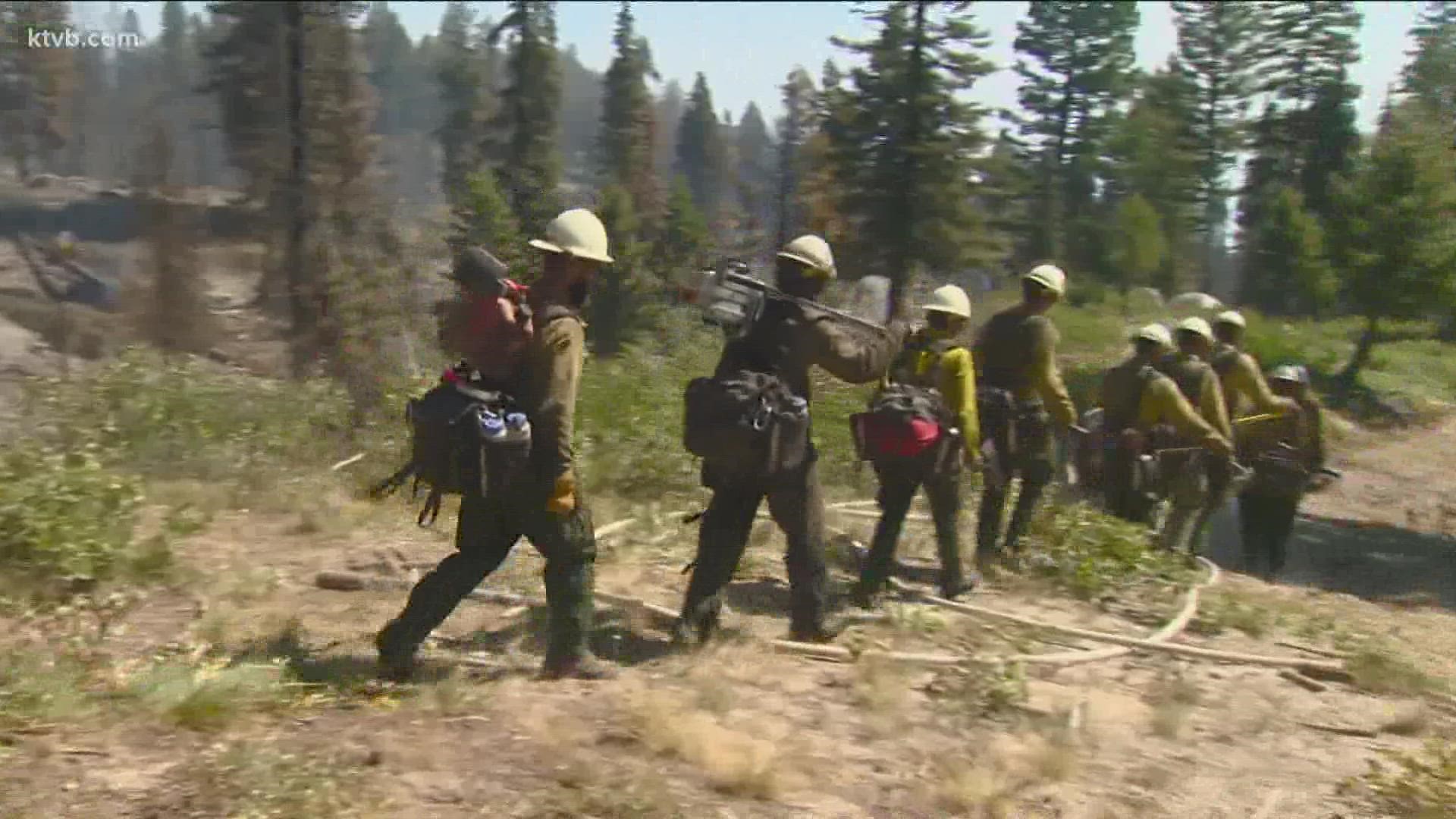BOISE, Idaho — They can't clock a regular 9 to 5 timecard - Monday through Friday - and expect the week to be over.
Wildland firefighting isn't like other jobs.
"I've put in 52-hour shifts before," Idaho Department of Lands (IDL) Fire Management Bureau Chief Josh Harvey said. "I'm not gonna say you're on call all the time, but when the phone rings, the expectation is you're gonna answer it and you're gonna respond."
Recruiting people to answer those calls is getting harder, according to Harvey. Partly because Idaho wildland firefighters currently make $12.55 per hour.
"People do have that choice. I can make 14 dollars an hour flipping burgers working a pretty set shift and not have to worry too much about getting burned up. If they got a little more of an adventurous side to them, those are the ones that come out and decide to fight fire," Harvey said. "But there's not as many as there used to be."
Years ago, 40 applicants may be competing for five to six jobs. Today, IDL gets closer to ten applicants. They can't be as selective as they'd typically want to be, Harvey said.
The state legislature addressed this problem in House Bill 588. The bill seeks to pay state wildland firefighters an extra 25% percent on top of their hourly wage when assigned to an active fire. The bill calls this incentive "hazard pay."
"It's recognizing our folks are doing work out there and they're exposed to elements they cannot control," Harvey said.
The bill passed the Idaho house and senate. It is currently on it's way to Governor Brad Little's desk.
The bill is needed not only to attract new talent but to also retain experienced firefighters, according to Harvey. Numbers from the IDL show 40% of state wildland firefighters leave after two years.
Federal firefighters recently got a pay bump to $15 an hour and already qualify for hazard pay. Nearby states also pay higher wages and offer hazard incentives.
"When you, as an individual, are going into that workforce and you have options, you're gonna go to who pays the best, right?" Harvey said.
Offering hazard pay will cost the state up to $390,000 a year according to the bill's statement of purpose. There is also a push at the statehouse to grant sufficient funding to bump the Idaho wildland firefighter minimum wage to $15 an hour, according to Harvey.
Once the bill hits Gov. Little's desk, he will have five days to decide if he will sign the bill into law or veto the bill.
If the governor does not address the bill after five days, it will also become law.
Watch more Local News:
See the latest news from around the Treasure Valley and the Gem State in our YouTube playlist:

